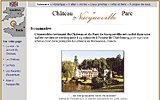What is Web Design ?
Summary: Web Design is an umbrella term for an increasingly multi-disciplinary specialism. It is less about graphic design in a Web environment, and more about a widening set of skills, including Web graphic design, needed for a website to make the Web work to best effect.
Web Design’s roots
Web Design is the process of making a website. The name arises because it used to be enough for a graphic designer to make up a design in a graphics program which then turned it into a Web page.
Modern Web Design
Modern Web Design is more sophisticated and increasingly powerful:
- Works effectively on several levels (the standards-based approach):
- for the search engine
- for the sighted visitor
- for the visitor with accessibility needs (with legal benefits).
- More adjustable by the visitor: text size, colour scheme, even shape
- Lower cost of ownership (standards-based websites): easier to maintain
Also, websites with a lot of information often allow visitors to search or select just part of what’s on offer e.g. in e-commerce websites - another level of complexity.
The multiple skills needed today
A state-of-the-art website will use several of the following skills:
- Coding / programming: to write the instructions for software delivering the Web pages. Between two and five languages may be needed, and more than one specialist. Accessibility issues must also be addressed.
- Web graphic design: for the “look” in lightweight graphics
- Interaction design: for the way we navigate through the website
- Web copy writing: to write for the way we read off screens
- Information architecture: to organise and categorise the information on the website so it is easy to find
- Animation: usually in Flash (self-contained software requiring a skilled specialist)
- Project management: so the client’s aims for the website are met by the agreed dates, and within everyone’s budgets.
© 2005-26 Romily Jones
